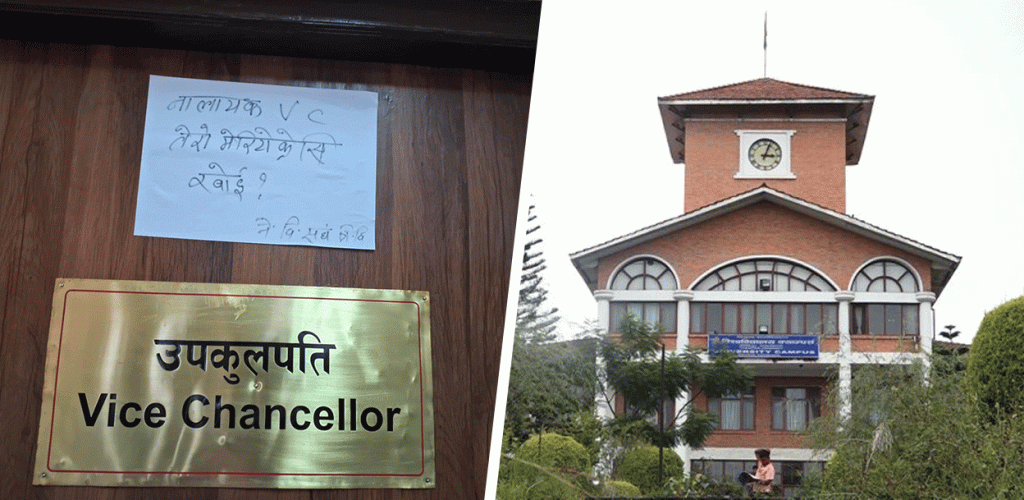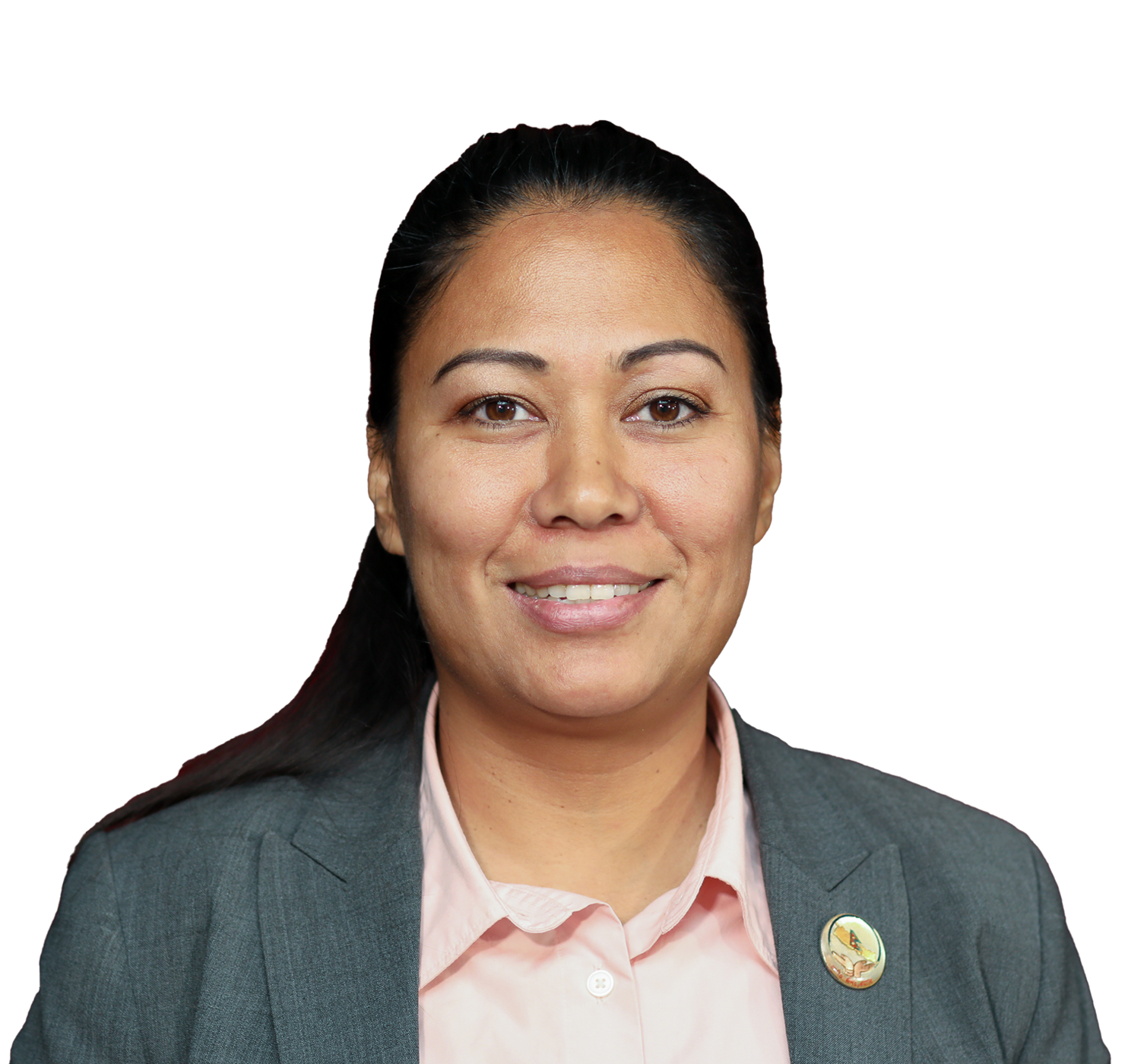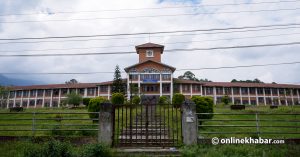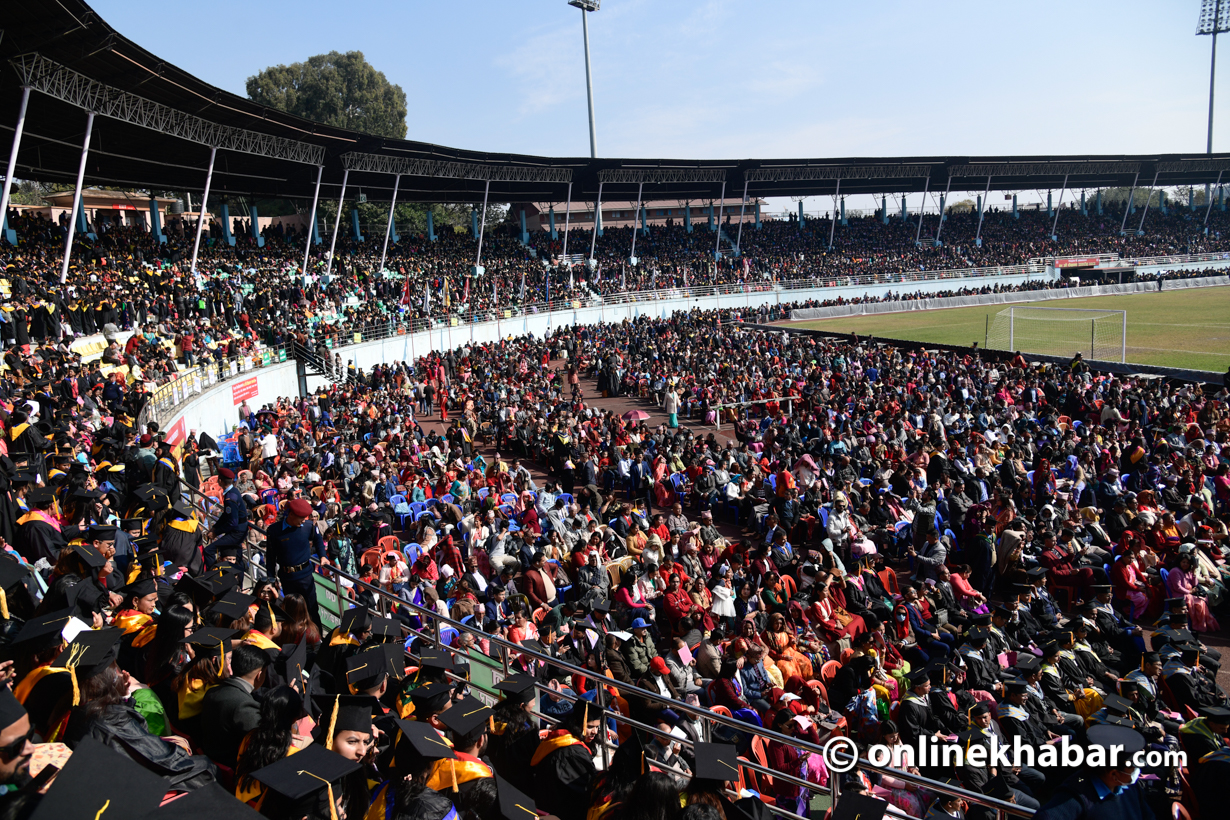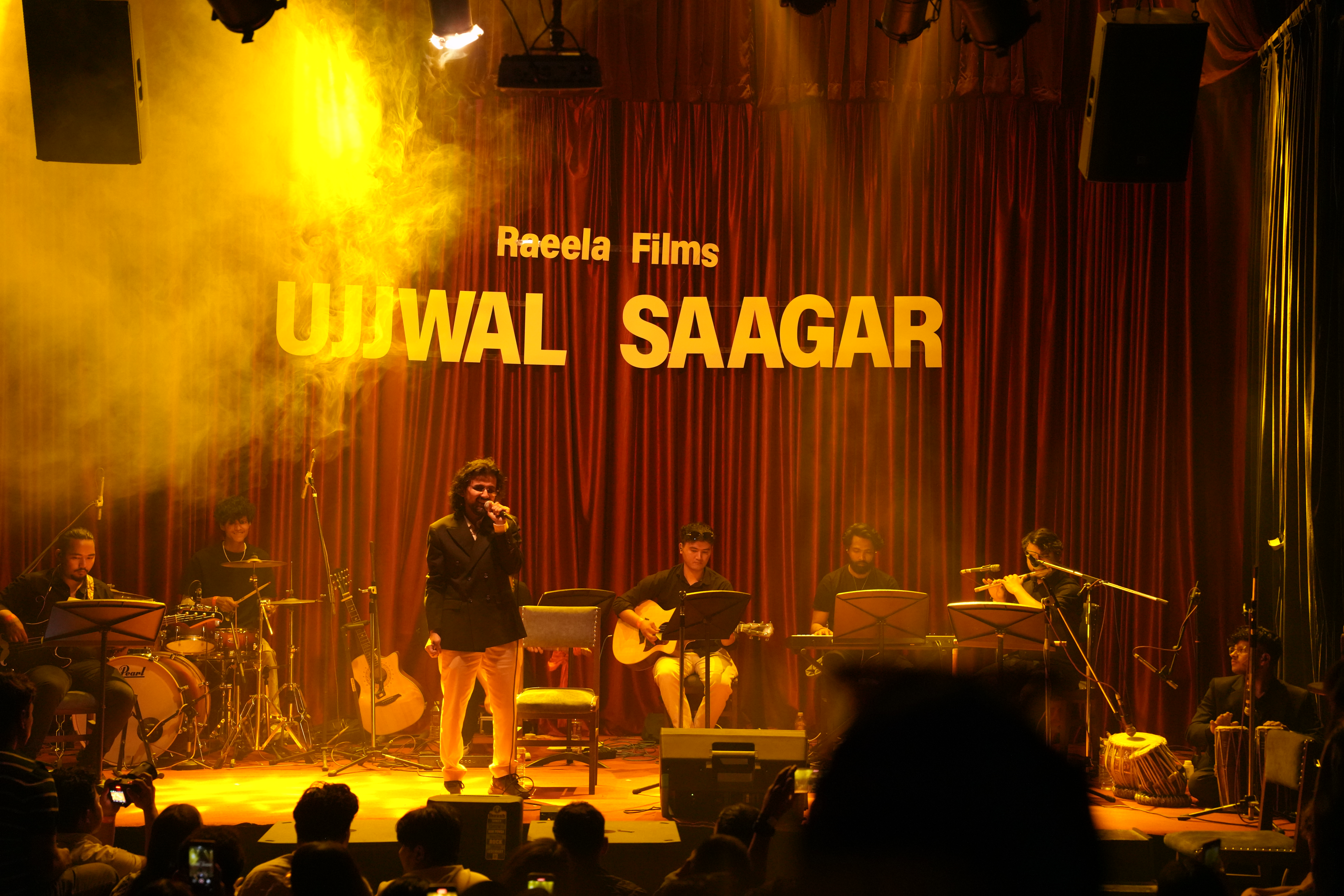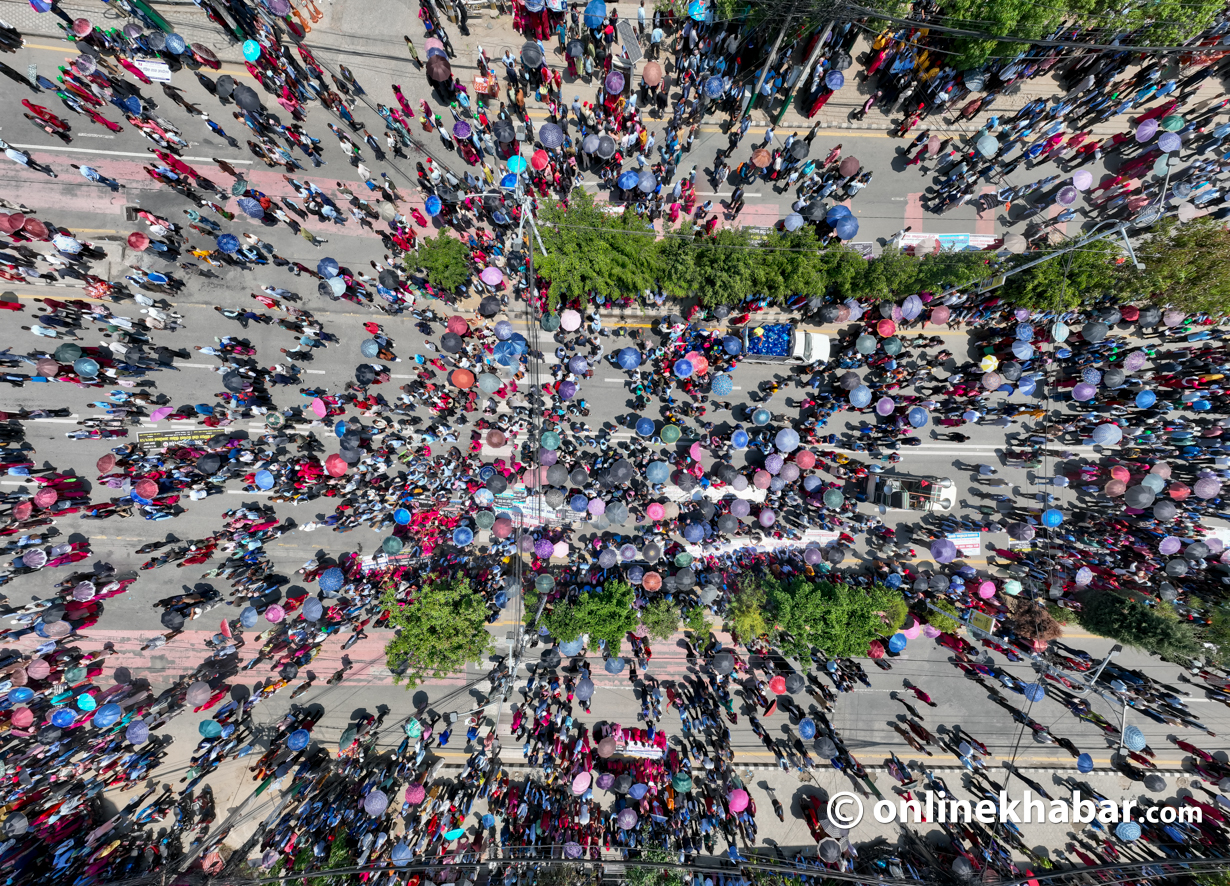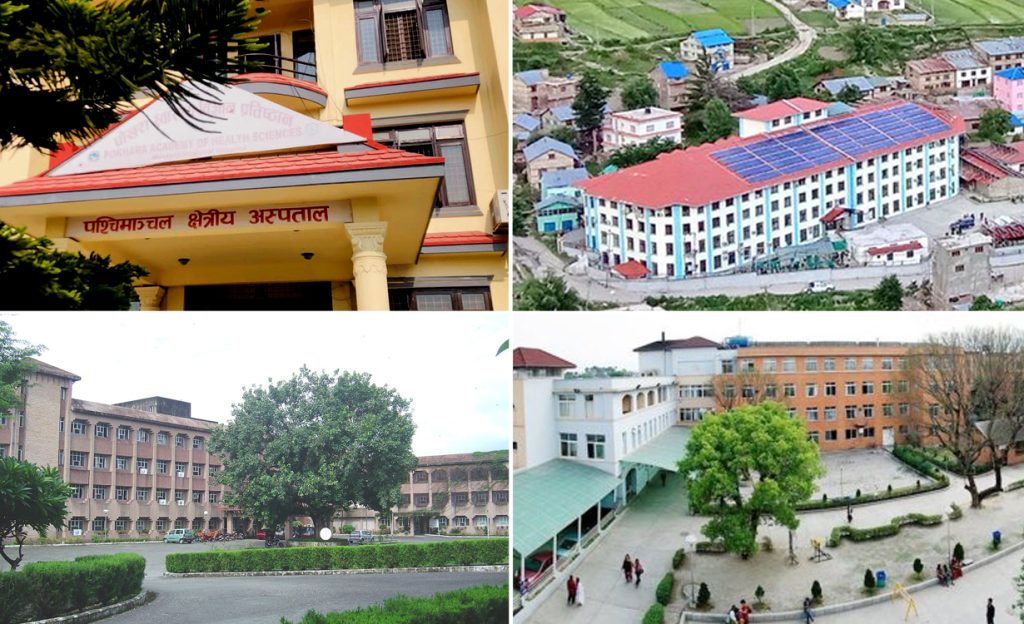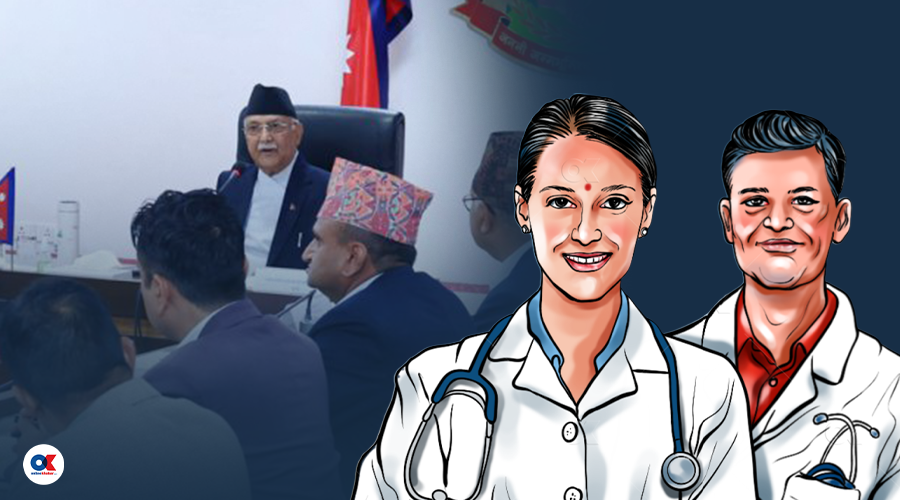
Manish Thapa completed his school in an underdeveloped village in the Dailekh district of Karnali. But last year, he came to Kathmandu and joined the Patan Multiple Campus under Tribhuvan University to pursue a bachelor’s degree in business studies.
Before joining the college in Kathmandu, he thought that he would be studying in a well-facilitated and healthy environment. But the reality was so different that he felt discriminated against as the college administrators only listened to the leaders of student unions affiliated with the parties, not the real students.
As the TU is approaching the free student union elections (FSU elections) later this month, the student unions are wooing people like Thapa of addressing their problems, but he is not convinced as he says the people who have been a part of the problem cannot make reforms.
Prajwal Bhandari of Bajura, Thapa’s classmate, agrees that the student unions that should have been responsible for regular internal exams and a well-managed library are making chaos on the campus.
The biggest university in Nepal is organising the FSU elections on March 19 for the first time in the past 14 years, but several students like Thapa and Bhandari are not excited enough.
Lack of energy and excitement

To prepare for the elections, student unions have set up help desks at the college premises. They have even started collecting advice from the students.
But, Bhandari and Thapa accuse them of coming into the class and creating disturbances in the name of collecting suggestions. Both of them think that the elected committee will not do anything remarkable for the college.
There are many others like them. “The student leaders may find it right to come and give a lecture amid the class, but for the genuine students they are creating a disturbance,” says Linji Chakradhar, a BA first-year student at Ratna Rajya Laxmi Campus.
For her, the FSU elections do not hold any significance. She says she does not know much about student politics and is not interested in casting her vote in the elections.
Let’s go to the Amrit Science Campus, another significant station in Kathmandu for the FSU elections.
Bibek Thakur, a bachelor-level third-year microbiology student there, says he does not have any interest in the elections. “I do not believe that the FSU elections are going to be held for the welfare of the students,” says Thakur.
The deviated path

Kamala Limbu, a third-year student of BSc Mathematics, has a decent interest in politics. But, similar to Thakur, she is also not interested in the college elections.
“For me, the student unions work more for their parties rather than for the student’s rights,” says Limbu, highlighting the problems the college has been facing of late. “ I have never seen them doing creative programmes for the betterment of students.”
But, student leaders say the FSU is a key medium to fight for the rights of students. According to them, the absence of FSU at the colleges recently has troubled the students and their education. Similarly, they also claim that the activeness of FSU compels the college administration to maintain transparency and pressure them on the academic and infrastructure development of the college.
However, there are questions if the FSU is still relevant given the student unions have focused their activities on political agenda, not academic ones. Hence, many consider such unions useless and unproductive. They are often blamed for creating an unhealthy environment at colleges. Most of the time they are involved in protests and fights rather than advocating for the students’ rights.
Educationalist Bidya Nath Koirala agrees. “All these reasons have made general students disappointed with the FSU elections. The student leaders, due to their displeased activities, have failed to gain the trust of general students.”
Kalpana Lama, a bachelor’s third-year student at Pashupati Multiple Campus, says that the FSU elections have only excited the student leaders. According to her, the general students are not concerned about it.
The activeness among the student leaders has created an environment for elections in the college, but most of the general students are reluctant to get involved in it, says Lama.
Hoping against hope

However, there are also some students, who despite having less knowledge, are excited to vote in the FSU elections. Ojashwi Neupane, a bachelor’s second-year student of geology at Tri-Chandra Campus, is one among them. Just recently, she has known the name of student unions that will be participating in the election.
“I don’t know what they do and will do after winning the election, but I’m excited to cast my first vote in the FSU elections,” says Neupane.
Asmita Shahi, another student of the same college, studying her bachelor’s second year in social work, knew about the FSU elections through her friends. “I am not clear about the tasks of the student union. However, I’m excited to cast votes in the elections.”








